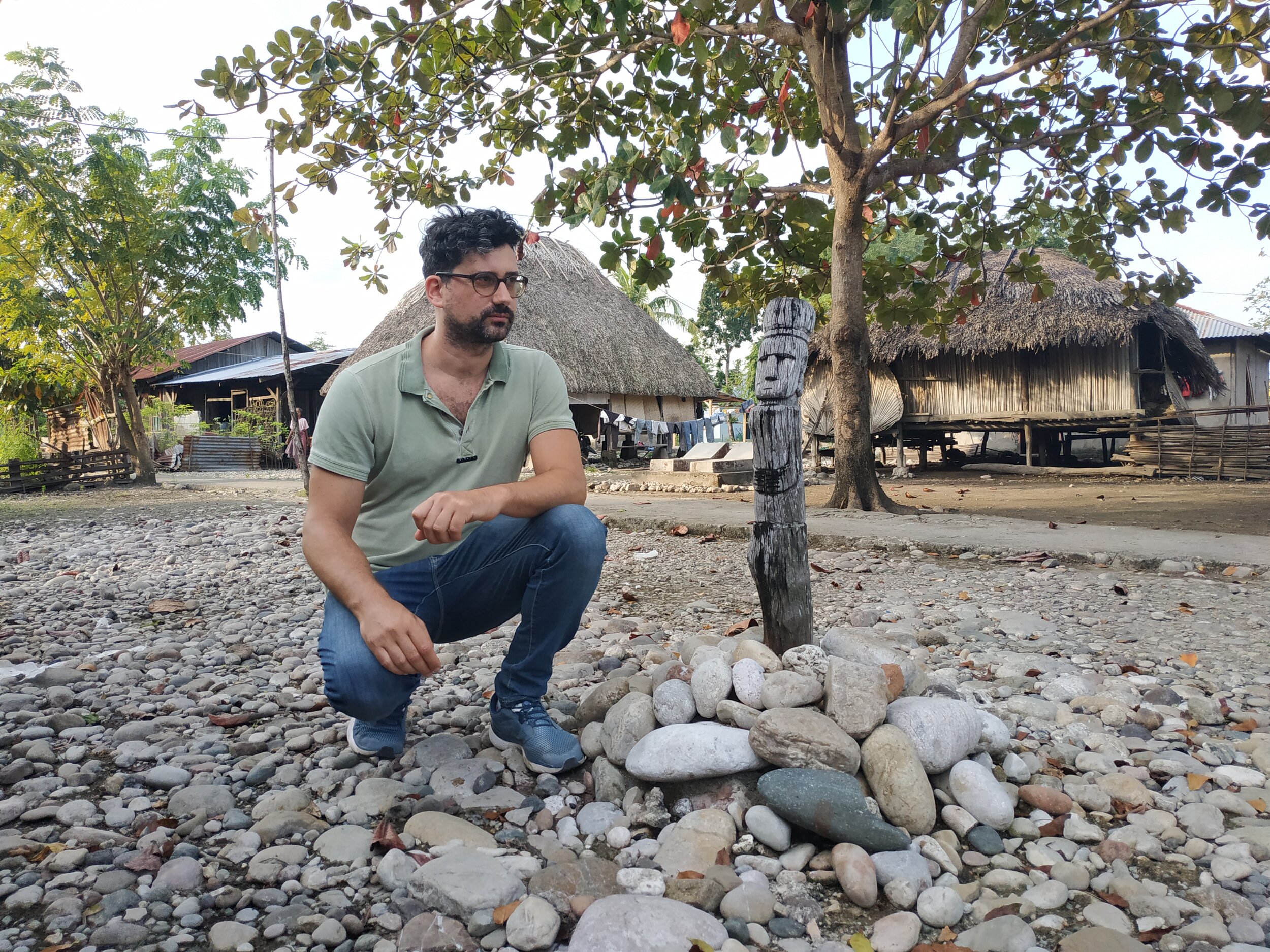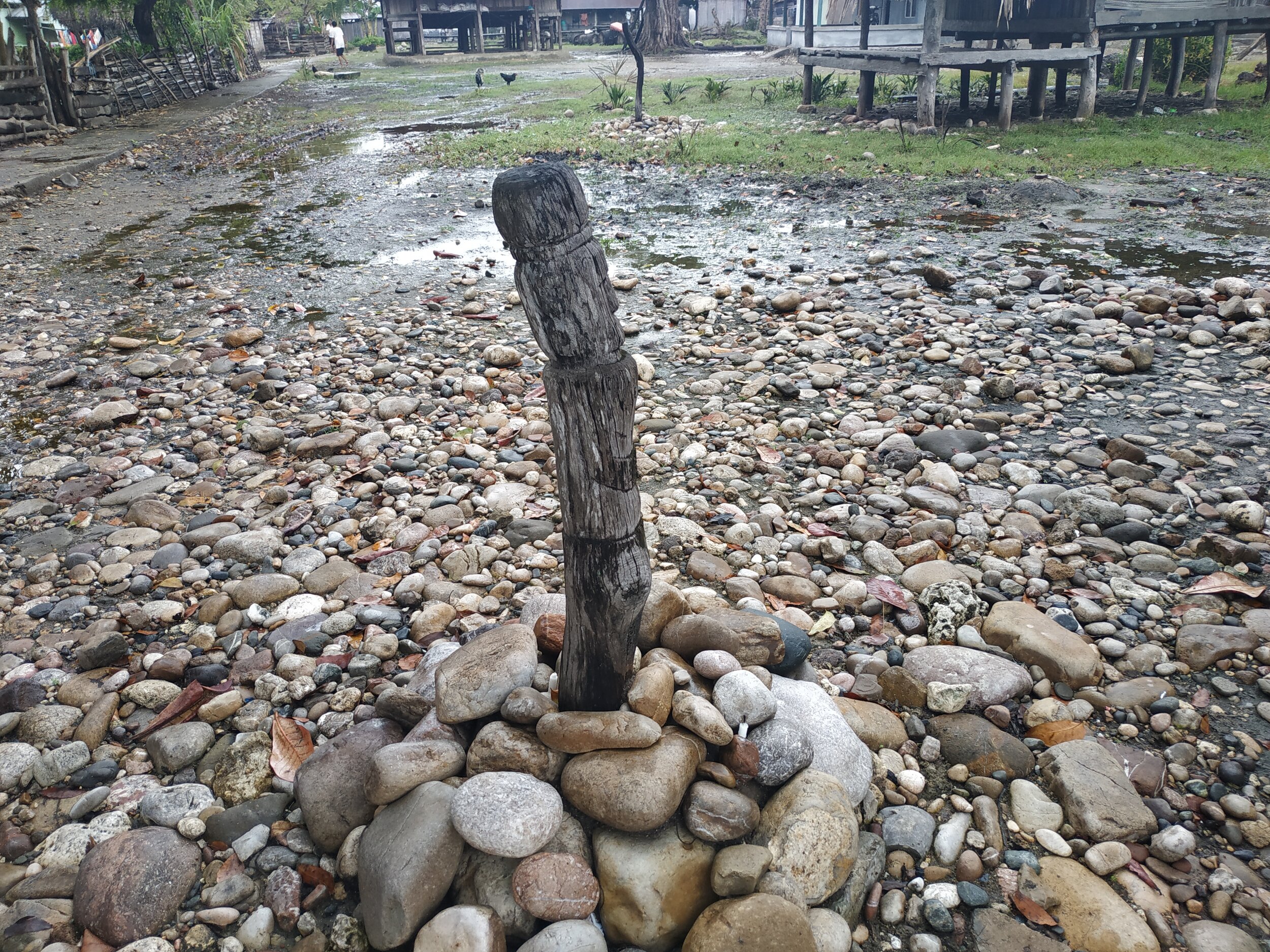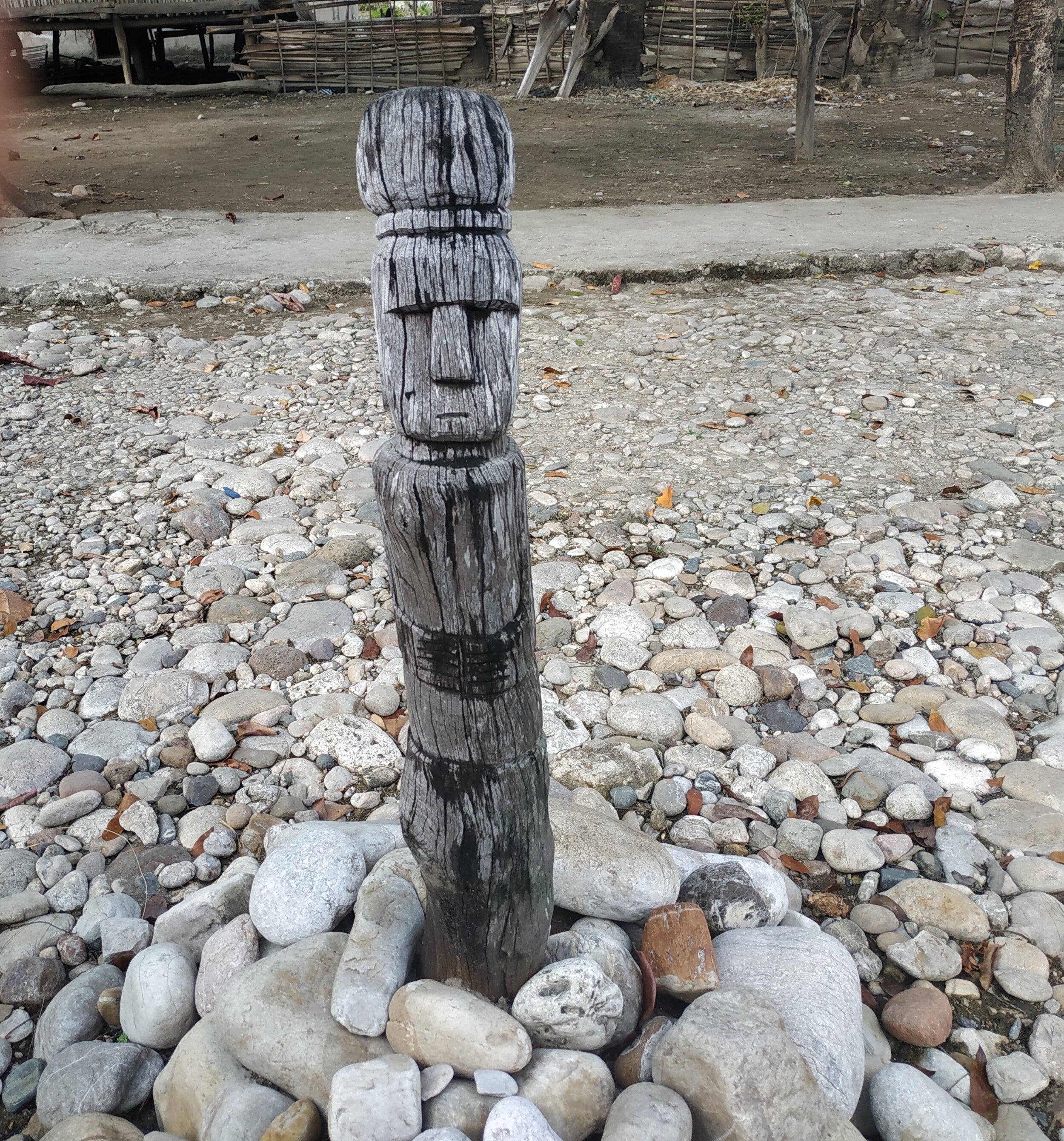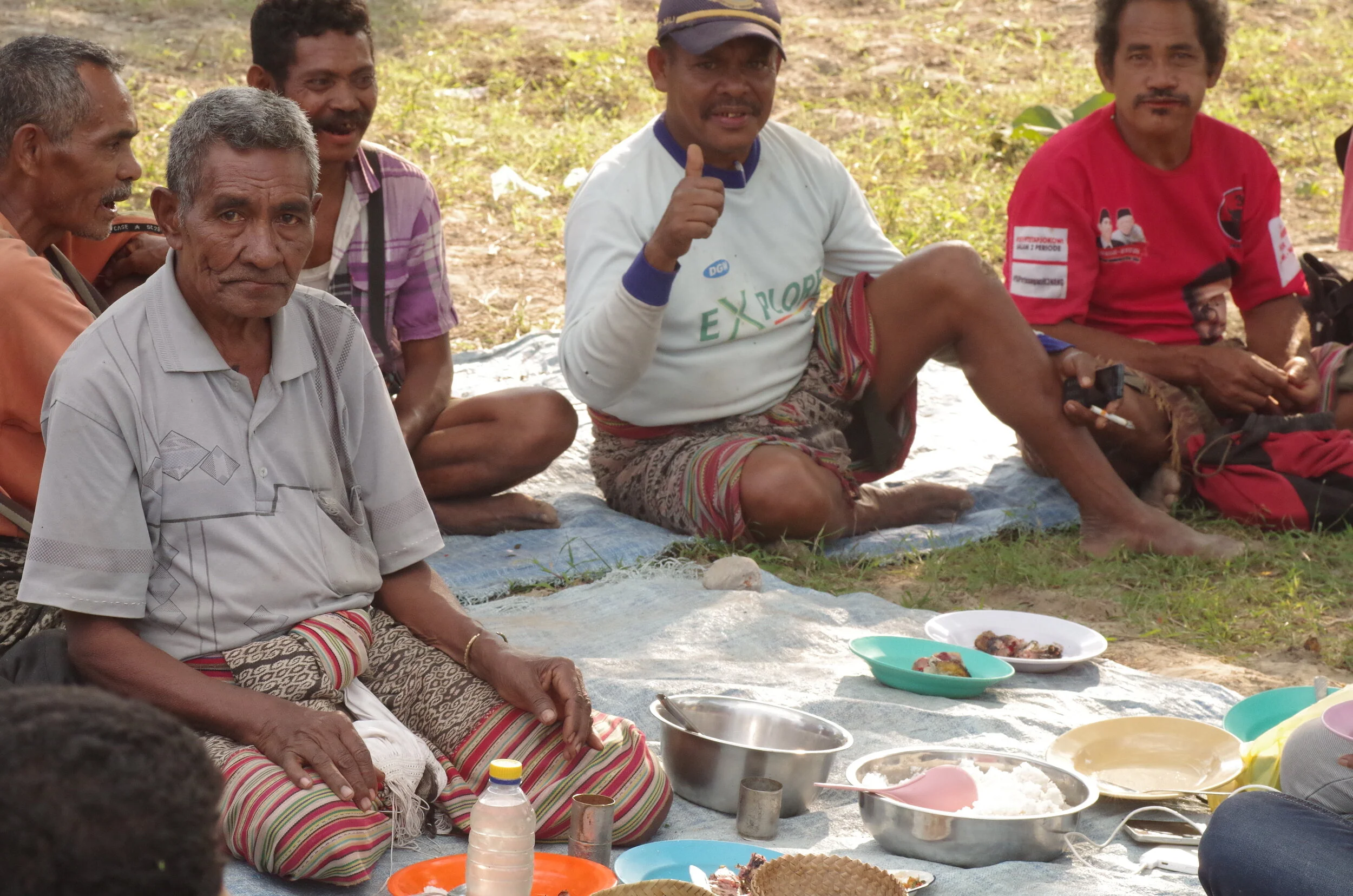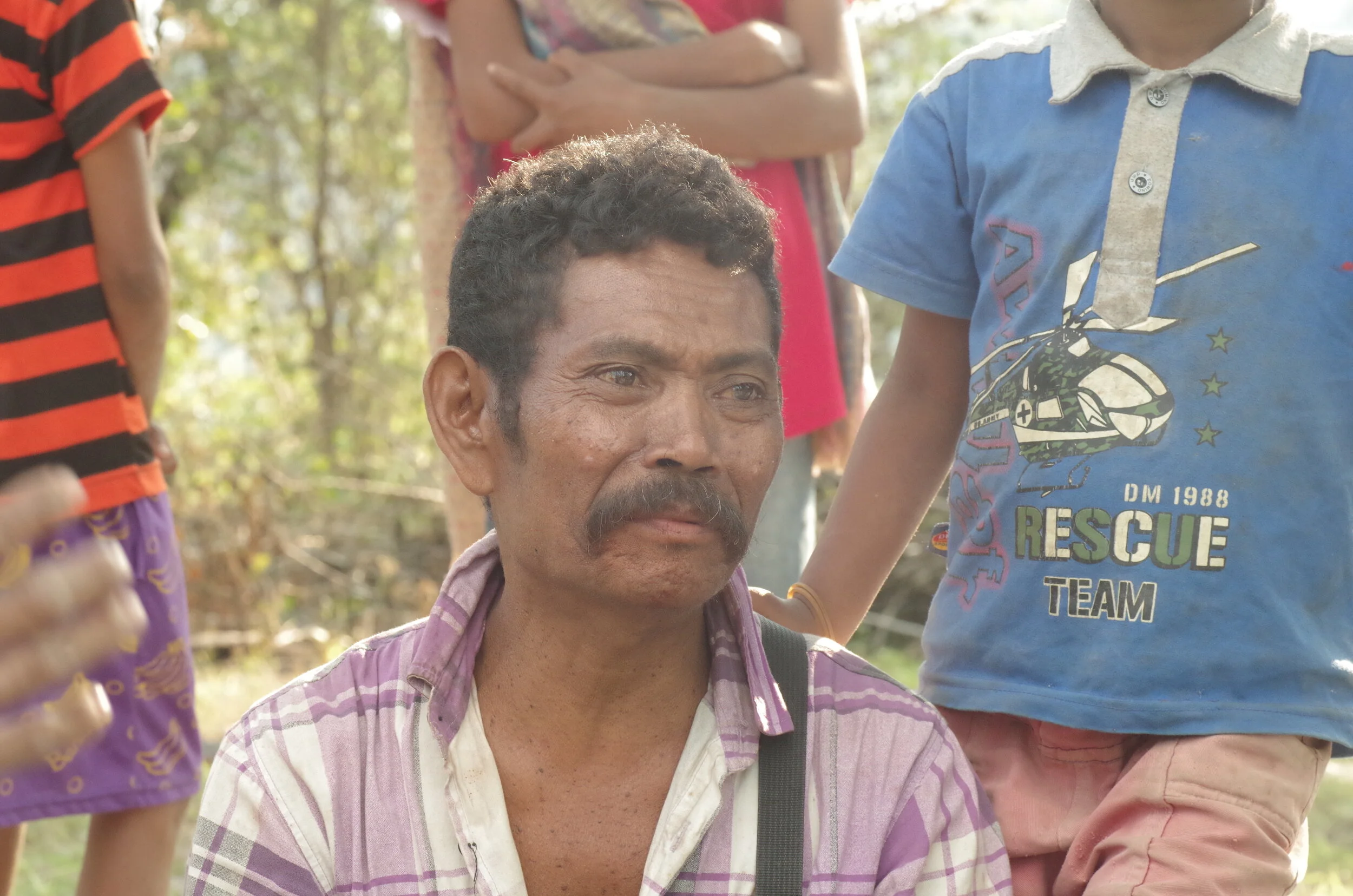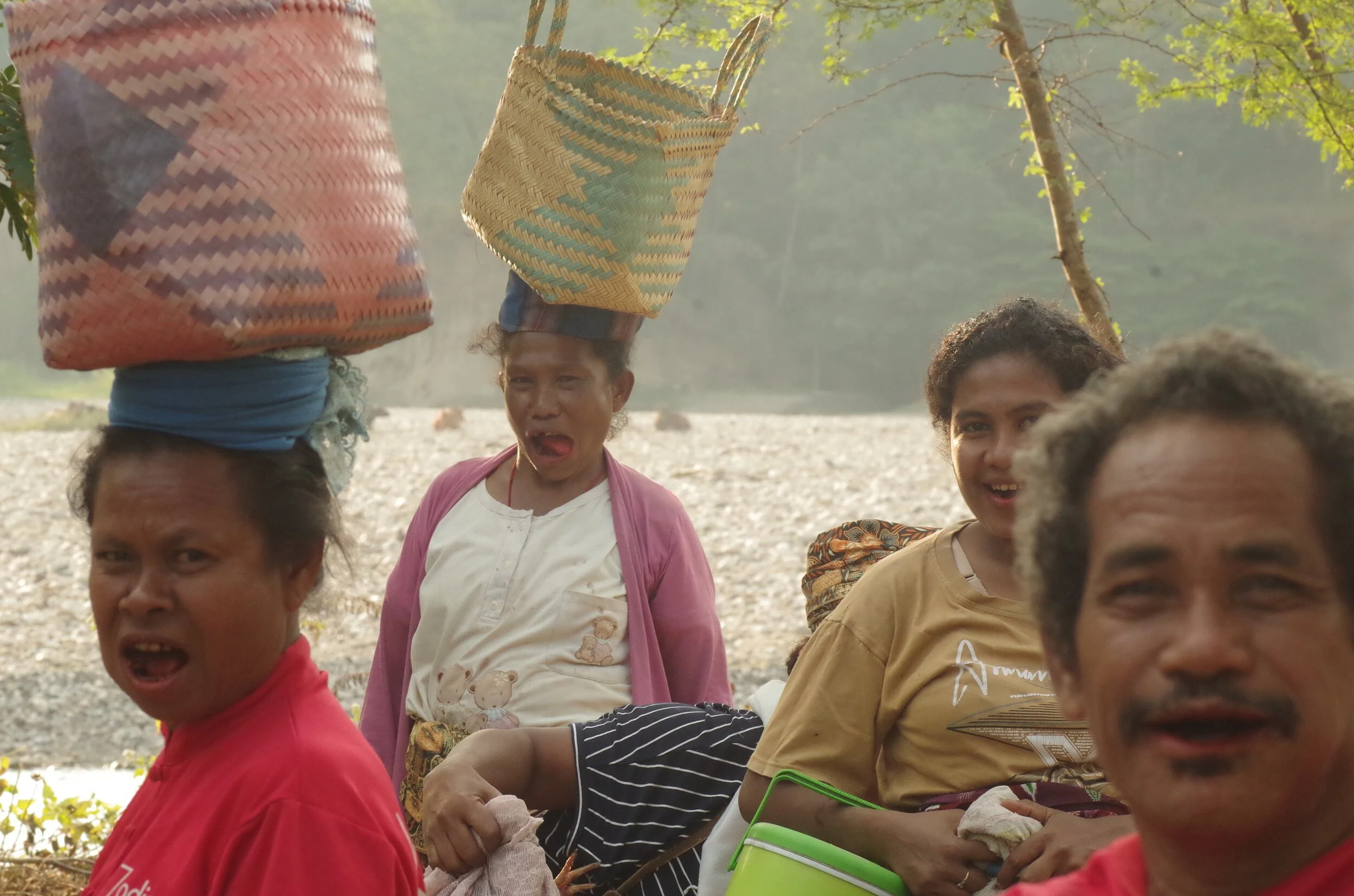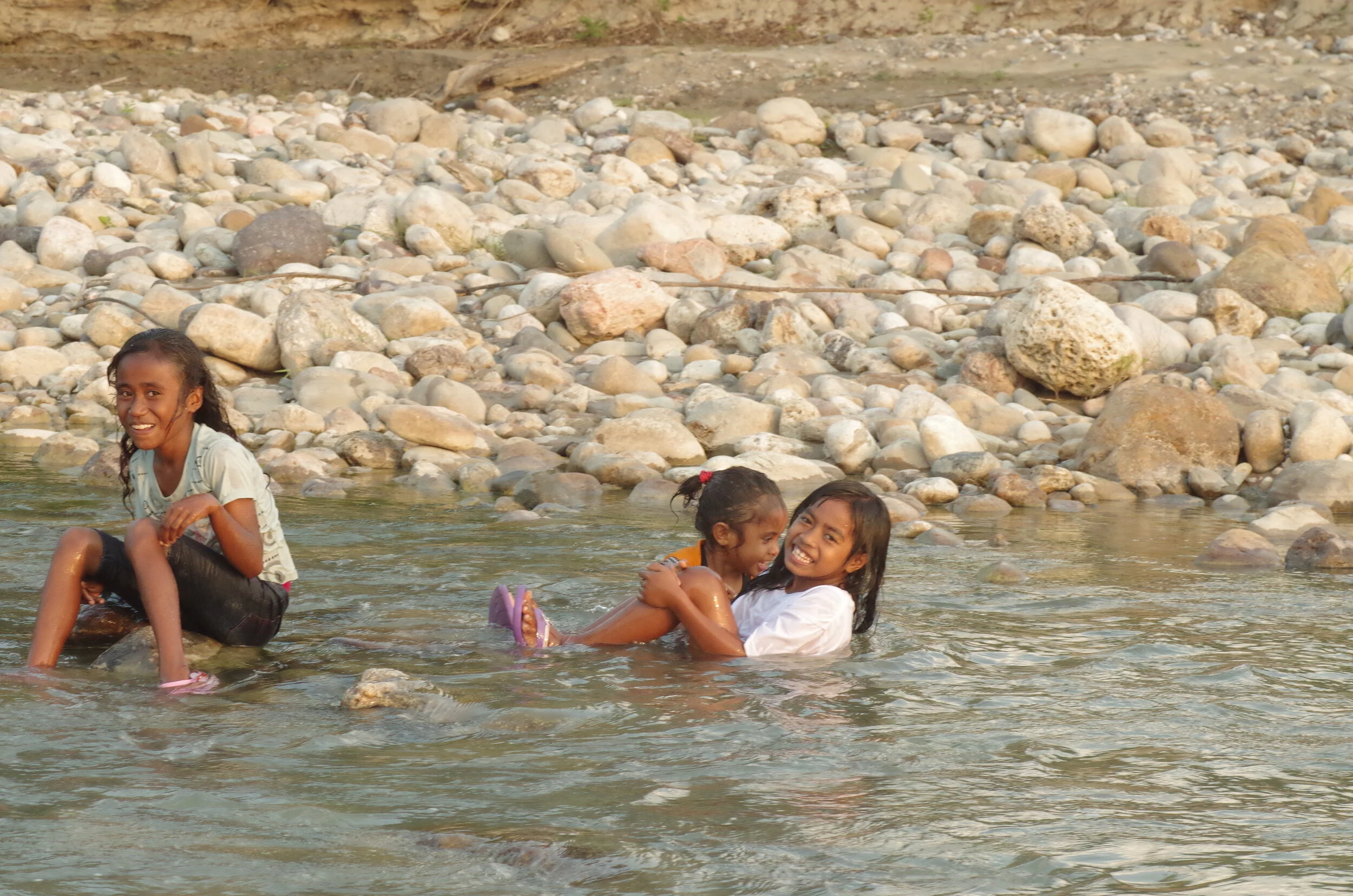I found this aitòs (anthropomorphic Timorese carvings representing ancestors or deities) in Tetum area, West Timor, Indonesia. they are used as altars, where important ceremonies are held regularly for the harvest and other important occasions. During the ritual an animal is usually sacrificed on the altar, and the first blood smeared on the pole.
The use of the masks in Amanuban district, West Timor, Indonesia. Interview to Paulus Nitiano, the last powerful shaman of the area
THE CEREMONY FOR THE BUILDING OF A NEW CANAL - BILLA VILLAGE, WEST TIMOR
People of Billa village gathered in a feast held after a ritual sacrifice to propitiate Uis Neno (their animist god) for the new water canal to work troughout the year. Billa Village, Amanuban Timur, Nusa Tenggara Timur, Indonesia, Monday (July 22nd, 2019). The ritual, lead by a shaman (called dukun) involved the spilling of fresh blood of chickens into the new canal. Afterward, they roasted the sacrificed chickens in an open field nearby and ate together with rice and sambal. Fresh blood was part of the ritual sacrifice of their animism belief that is still held until today despite the presence of Christianity.
In the foreground the dukun (shaman) Paulus Nitiano, who performed the ritual.
The chicken was roasted and eaten ritualistically with rice and spices by the villagers.
The new irrigation canal that the ceremony was held for.
Women traditionally sit apart from the men.
The Benenain river near Billa village
Paulus Nitiano, who performed the ritual, was believed to have the power of mastering water by the people of Billa village. e inherited that from his father and gran father who had become part of a legendary story passed from generation to generation in the village
He was a quite but funny old man. As we were walking down the river, he would now and then point out which part of the river had dangerous current or which path of the water was safe to pass through. And the man guiding him would follow his instructions without questions.

